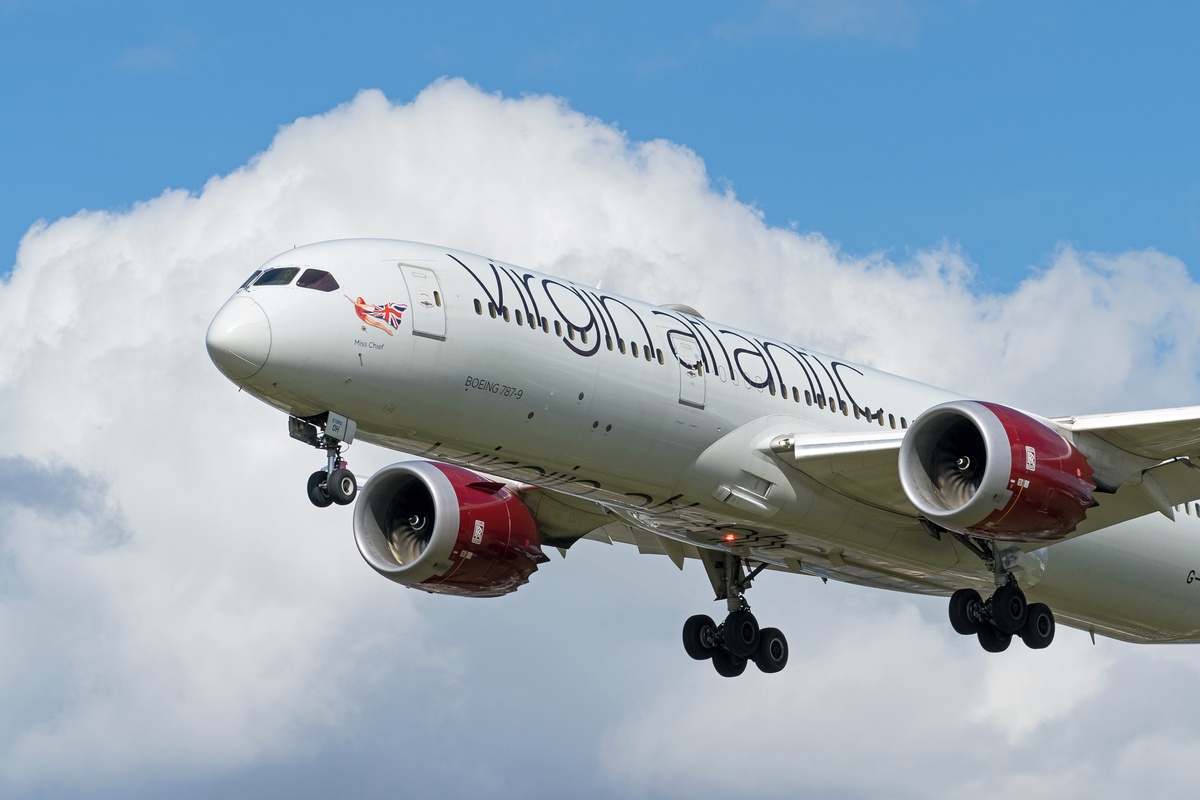Here’s What Will Happen Next to Corporate Airfares
Skift Take
To paint a picture of what corporate airfares will look like once planes return to the skies is becoming more difficult by the day — if not impossible.
Airlines, for one, have more pressing matters to deal with as they fight for survival during the ongoing crisis. Most in the U.S. will be working through the fine print of the $2 trillion U.S. stimulus package that throws them a lifeline of $50 billion in grants and loans.
Other carriers, particularly in Europe and Asia, have already downsized and furloughed most of their workforce and are now turning to refinancing. Cases in point include Air France-KLM, which is now looking for $6.5 billion in state-backed loans, while last week Singapore Airlines revealed it had secured $13 billion in new funding.
Get the Latest on Coronavirus and the Travel Industry on Skift's Liveblog
After the crisis, the aviation industry stands to be unrecognizable, and travel managers should consider future scenarios before returning to the negotiation tables. Will they see cheaper fares? Is a price war looming? What are the implications of airlines being nationalized? And what about the knock-on effect of vouchers and unpaid refunds?
These questions, and more, were addressed by travel managers and other experts who shared what's playing on their mind with Skift.
Timing is everything
One of the main questions to consider is, when will business travel bounce back? For Oliver Benoit, principal and vice president at Advito, all eyes should be on the U.S. for the answer.
“The best case is that business will resume steadily from June, but it’s unlikely to happen on a massive scale. Another scenario is it will resume in September. The worst case is there will be nothing this year.
“The most important trunk, in terms of business travel, is transatlantic. So when we see activity back there, then we know business travel is resuming. JFK to London is a strong signal.”
Weak pricing forecast
Comparisons are increasingly being made to the “Great Recession” of 2008, with a low recovery forecast. A recent HSBC analysis warned of weak traffic growth stretching deep into the upcoming decade. “It will take until 2022 or maybe 2023 to recover the level of traffic seen in 2019, since aviation volumes are directly related to economic activity and the world economy will shrink through this outbreak,” the bank predicted.
Lower fares will also be on the horizon because organizations will view corporate travel in a different light following months of virtual conferencing and remote working.
“This crisis will revise the way people think about meetings and events, and travel, in ways we’ve never seen before. That will put pressure on airlines to rethink the way they price and how they do their deals,” said Martin Cowley, chairman of travel technology company eRoam.
“Airlines will manage their yields more effectively. If anything, airlines are going to get a lot smarter. Will that translate into higher fares? Not necessarily. Because fares and prices tend to be driven by competition, and demand for corporate travel is going to take a long time to get back to where it was.
“People are quickly getting used to the fact they can work effectively from home, that they don’t have to spend half their life on the road. They don’t need to go to conferences and events in the same way they may have indulged themselves previously. I’ve more confidence in leisure travel, and pent-up demand, than I have in the rate of recovery in corporate travel.”
dynamic deals
Most companies contract their rates yearly, carrying out an annual request for proposal. But if this crisis has shown corporates anything, it’s the need to be agile with procurement to weather storms such as these.
“This crisis is a strong proof point that dynamic performance management, instead of traditional sourcing, is much more relevant,” said Advito’s Benoit. “Instead of a big RFP cycle, where you invite all the airlines at the same time, you source on a monthly basis.”
Monopoly concerns
Consolidation is on the cards, meaning fewer competitors on routes fighting for market share. "Since the Second World War, every time you have a crisis, there is always an acceleration of consolidation,” said Advito’s Benoit.
“We are trying to anticipate which airlines will be grounded, or partially grounded, to help us build a negotiation strategy for our clients. Some routes in a corporate program may move from a competitive landscape to a monopoly or dominant route, and that will have an impact on leverage and negotiation,” he added.
It's a concern one travel manager, working for an international retail company, voiced anonymously to Skift, saying he was worried less profitable routes from Europe into non-hub airports in the U.S. could face the axe.
"They won’t be a priority. Even if a corporate says it will commit to a route, the airline will need support from other companies. We’d have to fly indirect, which adds time," he said. "And with reduced infrastructure there will be fewer flights, less capacity, and we'll pay higher prices. The airline market is not a real market, and an airline's dependence on one customer is marginal; they can get away with marginal increases."
However, he added he hoped the U.S. government would impose a limit on the fares airlines will charge in the future, as those carriers will be effectively "living on tax payers' money".
Benoit added: “When I see carriers coming together to tell the US government that they are willing to cooperate on some routes, it means they are not willing to start a price war. They are fierce competitors… so the fact they think about that is interesting."
However, non-U.S. carriers operating out of mega-airports may be keen to race back into the corporate market, he added. "Other airlines, like the Gulf carriers, or Turkish Airlines, will most probably not play that game. They will be more interested in flying their planes as quickly as they can, even if they have low load factors, just to protect their future market share and put cash into the machine."
The implications here for travel managers is there could be a short period of time where the pricing is going to be low, as airlines seek to build load factors back up, before returning to pre-coronavirus levels.
The case of the missing refunds
Refunds, vouchers and unused tickets will be part of future discussions. Corporates traditionally talk to their preferred airlines about discounts, conditions and ancillaries — but they can now factor in the possession of refunds and vouchers they didn’t necessarily want as leverage.
“Airlines are dying for cash, but they are also very aware business travel is the quality yield they need, as quickly as possible. That’s the difference between profitable routes and non-profitable routes. They will be difficult in the negotiations, because their situation is critical, but they will be keen to protect this business travel segment,” Advito's Benoit noted.
However, he added that for the larger cash-rich corporations, the matter of outstanding refunds will be less of an issue.
In for the Long-haul
Some travel managers believe airlines will be prepared to offer better deals in return for longer contracts, even up to three years.
One travel manager at a global technology consultancy told Skift: “Now is the best time to negotiate a long-term, lower price deal. Requests for proposals are usually done yearly, but you can approach them on a three-year deal. They want that longevity now more than ever. Lock in low prices."
Benoit added that dynamic sourcing suits this line of thinking. "It builds over two to three years, because we don’t want to waste time negotiating every year. We are building this framework and try to make the negotiation have three years’ validity because we do it dynamically, we constantly adjust it."
Industry support
Travel managers should also be engaging with their travel agency partners to assist airlines, suggests Mandy Chan, global travel manager at technology company Mozilla.
Chan said she hasn’t heard from her U.S. airline contact — but understands why.
“We normally have a bi-annual or annual meeting with them to go over our spend, then at the end of the year go through the actual dollar amount spent in the past year, and then negotiate a rate again for the year after. The savings are important," she said.
“I haven’t actually heard from them yet, as it’s a very difficult time for everyone in the airline industry, but we have a meeting with our corporate travel agency to talk about that to see how we as a customer can help, to help the travel industry a little bit.”




